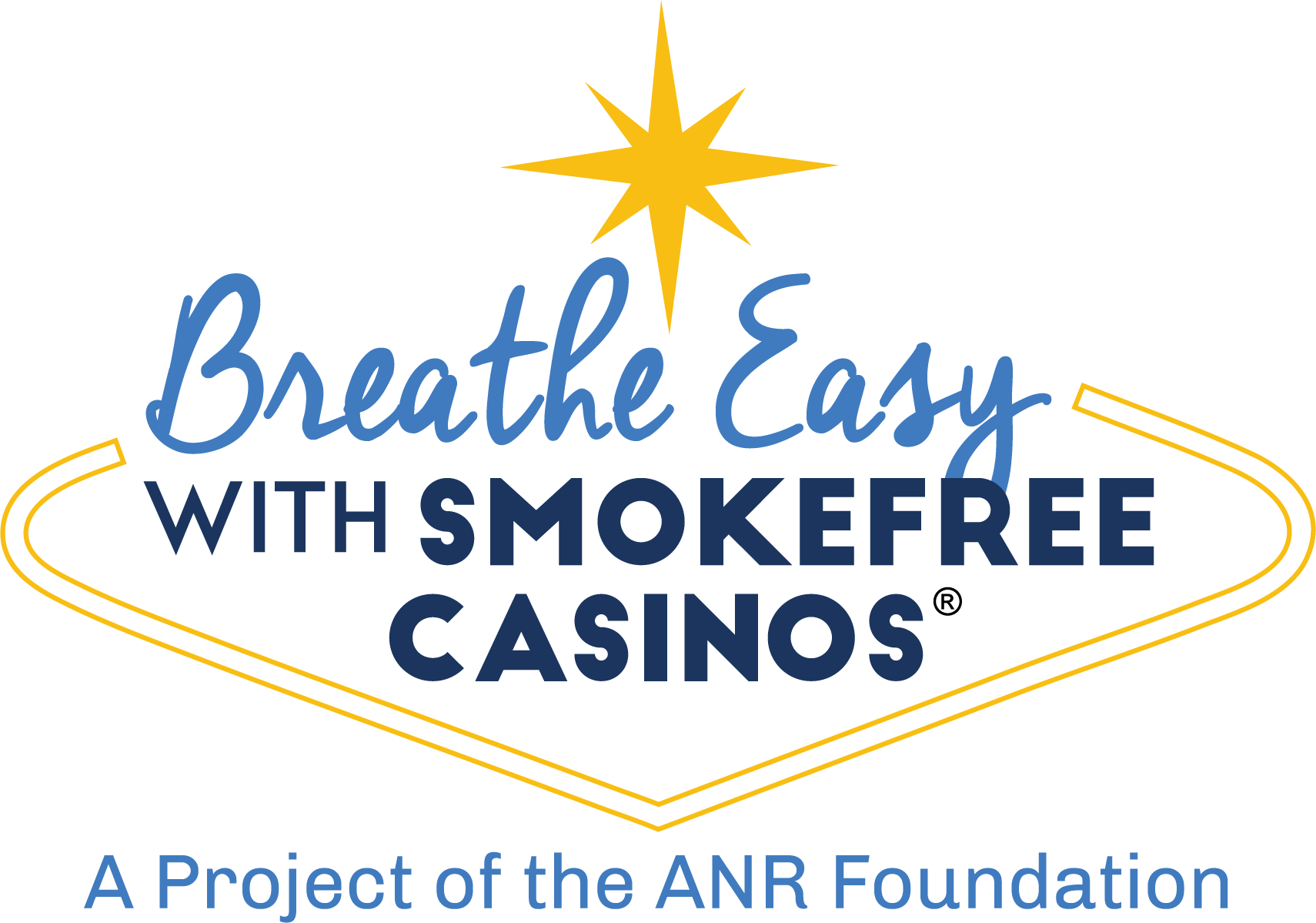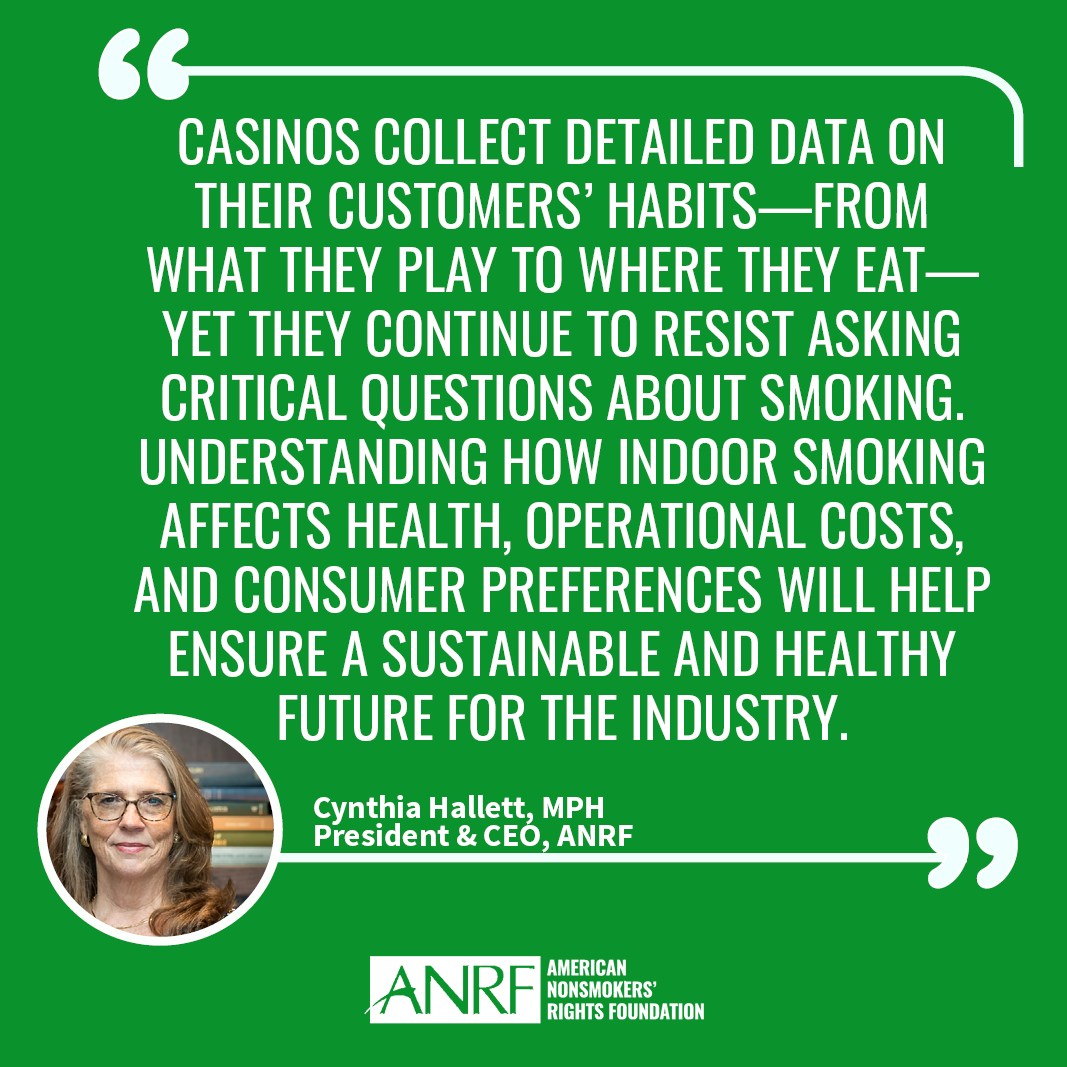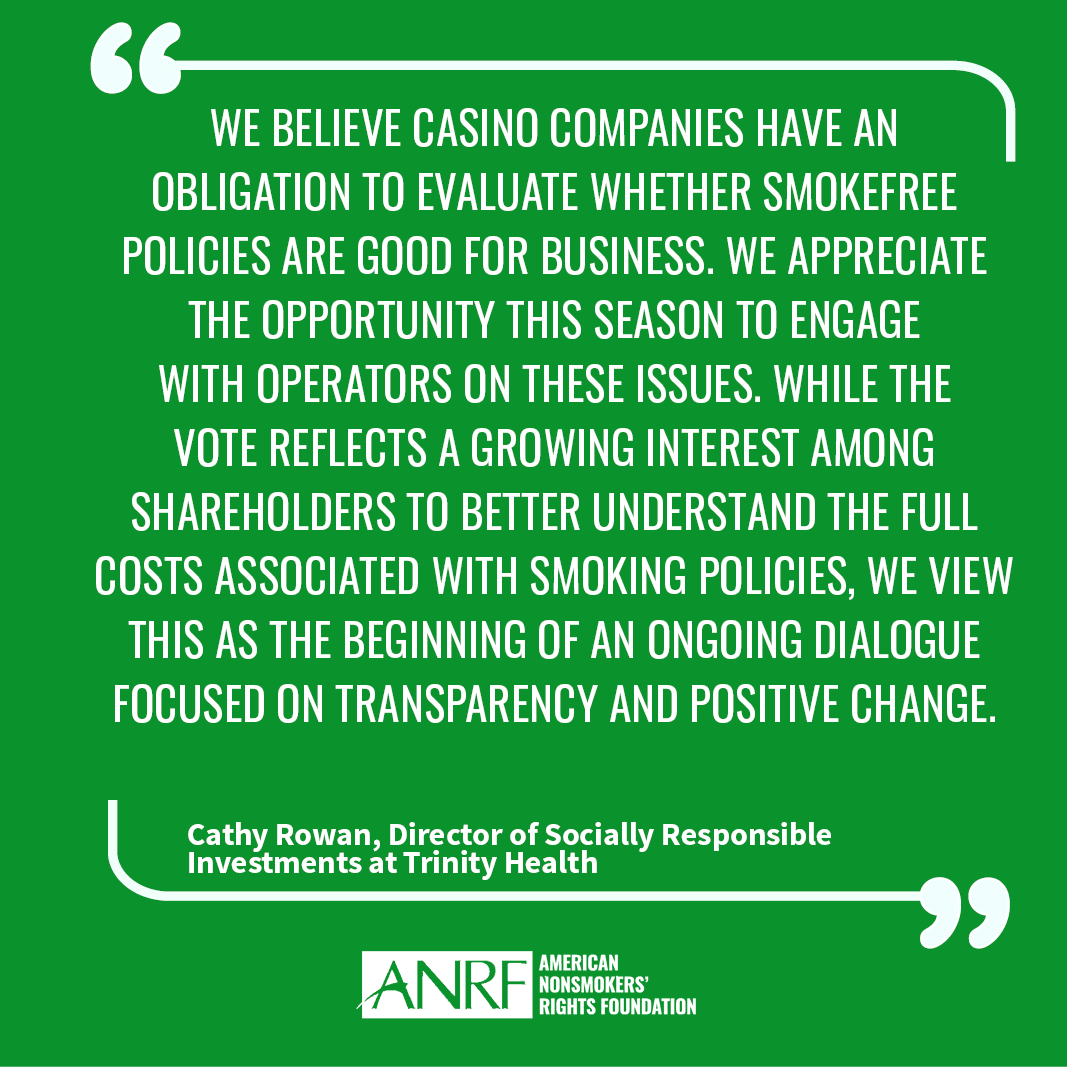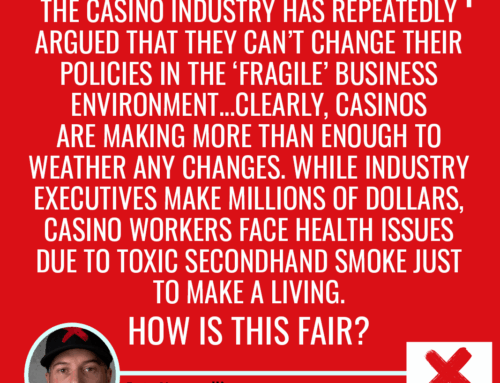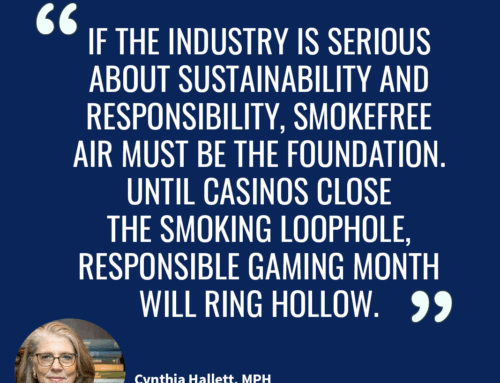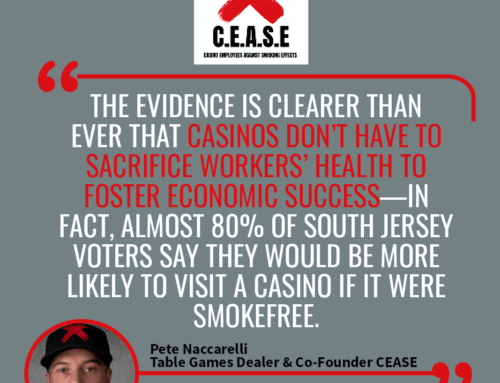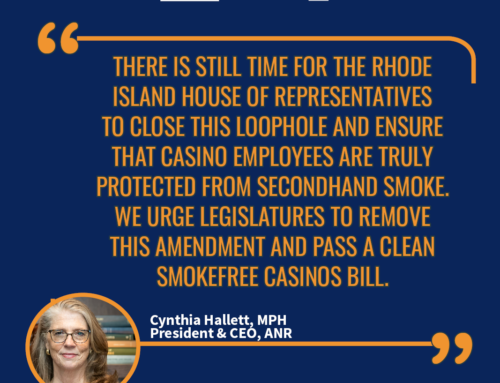Shareholder Proposals Garner Nearly 51 Million Votes, Pressing Casinos for Transparency on Indoor Smoking Costs
Strong Vote Results Signify Shifting Attitudes on Indoor Smoking and Support for Responsible Business Practices
Berkeley, CA —A shareholder proposal calling for Penn Entertainment to study the business impacts of allowing indoor smoking received more than 19.8% of the shareholder proxy vote, nearly 1-in-5 shareholders. This level of support, far surpassing the 5% threshold needed to be refiled in 2026, indicates a strong level of investor interest in greater transparency on the business costs and risks associated with indoor smoking.
With the vote at Penn, 2025 shareholder votes on smokefree casino proposals — submitted by the American Nonsmokers’ Rights Foundation (ANRF), Trinity Health, and the School Sisters of Notre Dame Collective Investment Fund — have concluded with nearly 51 million proxy votes cast in favor across four major gaming companies.
Proposals filed at Penn Entertainment, Caesars Entertainment, Wynn Resorts, and Boyd Gaming called for each company to conduct and disclose an independent analysis of the costs associated with allowing indoor smoking — including maintenance, insurance, liability exposure, and potential health impacts on workers and guests. Penn Entertainment joins Wynn Resorts in meeting the threshold for resubmission in its first year.
“Shareholders are asking thoughtful, important questions about the impact of smoking on business operations and worker health,” said Cynthia Hallett, president and CEO of ANRF. “Casinos collect detailed data on their customers’ habits — from what they play to where they eat — yet they continue to resist asking critical questions about smoking. Understanding how indoor smoking affects health, operational costs, and consumer preferences will help ensure a sustainable and healthy future for the industry. We look forward to continuing to engage with casino operators as they consider how best to address these important factors.”
The votes reflect a growing call for accountability on an issue that affects tens of thousands of casino workers and millions of guests each year. Results from the 2025 shareholder season include:
• Boyd Gaming: Over 11% of all proxy votes backed the proposal, including more than 21% of outside shareholder votes, in its second year on the ballot.
• Caesars Entertainment: Nearly 10% of shareholders supported the proposal, with over 16.3 million votes in favor.
• Wynn Resorts: In its first year, the proposal received over 8.6% support, ensuring it can be refiled next year.
• Penn Entertainment: The proposal received over 19.8%, or nearly 22 million, shareholder proxy votes, clearing the bar to resubmit in 2026.
Wynn, Boyd, and Caesars each sought to exclude the proposals from their annual proxy ballots, but the Securities and Exchange Commission (SEC) rejected those efforts, reaffirming that shareholder concerns about the business risks of smoking merit consideration and disclosure.
“From rising health care costs to workforce instability and changing consumer preferences, the business risks of maintaining indoor smoking are real,” said Cathy Rowan, Director of Socially Responsible Investments at Trinity Health, a co-filer of the proposals. “Investors are not asking for outright elimination starting tomorrow — they’re asking for disclosure. We believe casino companies have an obligation to evaluate whether smokefree policies are good for business. We appreciate the opportunity this season to engage with operators on these issues. While the vote reflects a growing interest among shareholders to better understand the full costs associated with smoking policies, we view this as the beginning of an ongoing dialogue focused on transparency and positive change.”
Despite the consistent show of support, companies like Caesars declined to engage with investors ahead of their annual meetings, even mischaracterizing the proposals as calling for smoking bans rather than studies.
The casino industry has long claimed that going smokefree would hurt profits, despite evidence to the contrary from 20 states that ban smoking in commercial casinos. Companies including Wynn, Caesars, Boyd, and Penn already operate successful smokefree casinos in multiple jurisdictions—even as they continue to oppose smokefree efforts elsewhere.
As public support for smokefree environments grows, and more workers speak out, investors are encouraging the industry to take a fresh look at its policies and their impacts.
Background
As of 2025, 20 states, plus Puerto Rico and the U.S. Virgin Islands, mandate 100% smokefree commercial casinos. Additionally, more than 100 sovereign Tribal casinos operate smokefree indoors. The growing trend toward smokefree policies reflects not only public health priorities but also the business case for such policies.
A report by Las Vegas-based C3 Gaming found that casinos without indoor smoking outperform their smoking counterparts. “Data from multiple jurisdictions clearly indicates that banning smoking no longer causes a dramatic drop in gaming revenue. In fact, non-smoking properties appear to be performing better than their counterparts that continue to allow smoking.”
In the U.S., approximately 11% of adults smoke cigarettes, a percentage that has steadily declined over recent decades. Despite this, many casinos continue to permit indoor smoking, exposing millions of guests and tens of thousands of workers to secondhand smoke. The American Society of Heating, Refrigerating and Air-Conditioning Engineers (ASHRAE) has stated that ventilation and air filtration systems cannot eliminate the health risks of secondhand smoke.
###
ABOUT ANRF
Sister organization to Americans for Nonsmoker’s Rights, ANR Foundation (ANRF) is a 501c3 non-profit educational and advocacy group that has been working for nearly 50 years to protect everyone’s right to breathe nontoxic air in workplaces and public places, from offices and airplanes to restaurants, bars, and casinos. ANRF has continuously shined a light on the tobacco industry’s interference with sound and life-saving public health measures and successfully protected 61% of the population with local or statewide smokefree workplace, restaurant, and bar laws. ANRF aims to close gaps in smokefree protections for workers in all workplaces, including bars, music venues, casinos, and hotels. For more information, please visit https://no-smoke.org/. ANRF projects include https://smokefreecasinos.org/ and https://smokefreemusiccities.org/.
